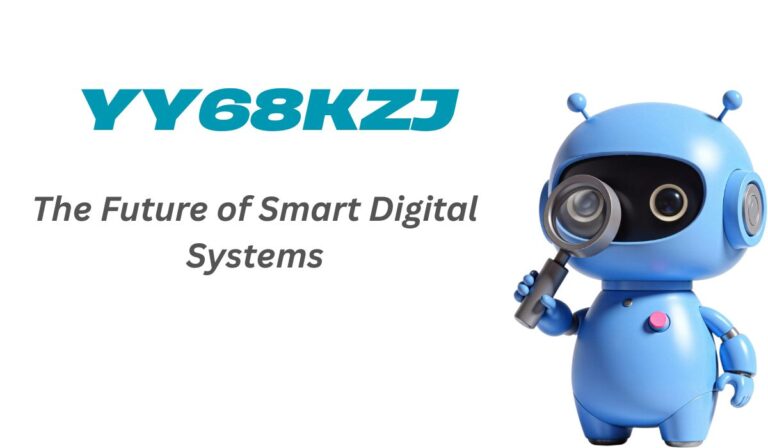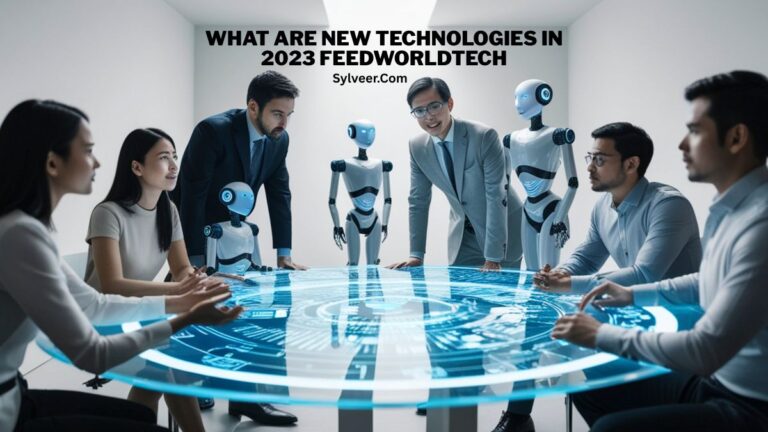
Shannon Reardon Swanick stands at the intersection of technology and social justice, challenging the tech industry’s promise that smart cities require surveillance. Her groundbreaking work has proven that communities can harness the power of data without sacrificing privacy or autonomy—and the results speak for themselves.
Through her nonprofit Community Data Initiative (CDI), Shannon has helped 47 communities implement data sovereignty protocols, trained over 15,000 residents in digital rights advocacy, and influenced 183 municipal policy changes. Her approach has earned recognition from Fast Company as one of the “100 Most Creative People in Business.” Still, Shannon measures success differently: by the number of communities that now control their data destiny.
Her philosophy cuts through Silicon Valley rhetoric with surgical precision: “We don’t need smart cities. We need cities that help residents be smarter.” This isn’t just idealism—it’s a practical framework that has transformed how municipalities approach technology, placing power back into the hands of the people who call these places home.
For anyone interested in how technology can truly serve communities rather than extract from them, Shannon’s journey offers both inspiration and actionable blueprints. Her work demonstrates that the future of urban innovation lies not in corporate-controlled platforms, but in systems designed by and for the people who live in these spaces.
From Academic Theory to Community Practice
Shannon’s transformation from student to activist began at Columbia University, where she pursued her Master’s in Sustainable Urban Development. The program exposed her to a troubling pattern: “smart city” projects consistently failed because they prioritized sensors over citizens, efficiency over equity.
Her Columbia thesis, “Data Sovereignty in Municipal Governance,” challenged the fundamental assumptions driving these failures. While cities invested millions in corporate platforms that increased surveillance, residents saw a slight improvement in their daily lives. Shannon proposed a radical alternative: community-controlled data systems where residents understood, controlled, and directly benefited from information collected about their neighborhoods.
The thesis argued that data collection without community consent represented a form of digital colonialism. Cities were allowing corporations to extract valuable information about residents while providing minimal benefits in return. Shannon’s research demonstrated how this dynamic perpetuated existing inequalities and created new forms of technological dependence.
Her academic work provided the intellectual framework for everything that followed. Rather than accepting the tech industry’s narrative that efficiency required surveillance, Shannon proved that communities could harness data for the public good without sacrificing privacy or autonomy.
By the late 2010s, Shannon was ready to transform these insights into real-world solutions. She founded the Community Data Initiative, a nonprofit consultancy designed to help municipalities harness data power without falling prey to surveillance capitalism.
Building the Community Data Initiative
CDI represented a fundamental departure from typical smart city consulting. Instead of selling expensive technology solutions, Shannon’s organization focused on building community capacity and ensuring local control over data collection and analysis.
“Data is power,” became her rallying cry. “If only corporations have it, they have all the power. Communities need their data, gathered ethically, to make informed decisions.”
The organization’s approach emphasized education alongside implementation. Every CDI project included comprehensive community education about data privacy, algorithmic bias, and digital rights. Residents learned to ask the hard questions that most smart city initiatives glossed over: Who controls this data? How is it being used? Who benefits from its collection?
This educational component proved crucial to CDI’s success. When communities understood the implications of data collection and had genuine control over the process, they became enthusiastic participants rather than passive subjects. They could see direct benefits from the information being gathered because they helped design the systems and determined how data would be used.
CDI’s methodology prioritized transparency and community ownership. Unlike corporate smart city solutions that treated data as proprietary assets, Shannon’s approach made information freely available to the communities that generated it. Residents could access, analyze, and act on data about their neighborhoods without depending on external experts or paying licensing fees.
The nonprofit structure was intentional. Shannon wanted to demonstrate that community-serving technology didn’t require profit-driven motives. By operating as a consultancy rather than a technology vendor, CDI could prioritize community needs over revenue generation.
Transformative Projects That Deliver Real Results
Under Shannon’s leadership, CDI created partnerships between city councils, schools, and local businesses that fundamentally transformed how communities functioned. These projects demonstrated that community-controlled data systems could deliver practical benefits while respecting privacy and maintaining local control.
Real-Time Transit Feedback Systems
Working with medium-sized cities, CDI developed applications that allowed residents to report bus delays, request route improvements, and track transportation equity across different neighborhoods. The key difference from corporate transit apps was community control over the data and decision-making process.
One Ohio city participating in this program reduced average wait times by 23% within eight months. The improvement came not from expensive new infrastructure, but from better information flow between residents and transit authorities. Riders could report problems in real-time, while transit officials could identify patterns and make targeted improvements based on actual community needs.
Predictive Maintenance for Public Housing
Using sensor networks combined with community reporting systems, CDI helped housing authorities prevent problems before they became crises. The approach combined technical monitoring with resident knowledge, creating comprehensive early warning systems.
Results exceeded expectations across multiple cities. Emergency repair costs dropped 45% while resident satisfaction scores doubled. The success came from treating residents as partners rather than passive recipients of services. When people had voice and agency in the maintenance process, both technical outcomes and human experiences improved dramatically.
Community-Controlled Economic Development
CDI’s most ambitious project helped neighborhoods track economic indicators, including business openings, employment rates, and housing costs, then use this data to guide development that served existing residents rather than displacing them.
The project created transparent systems for monitoring gentrification and economic displacement. Communities could see patterns emerging and advocate for policies that protected long-term residents while supporting sustainable development. The data became a tool for community organizing rather than corporate profit-making.
Core Principles That Challenge Smart City Orthodoxy
Shannon Reardon Swanick’s approach to urban technology rests on principles that challenge conventional smart city wisdom. Her work demonstrates that these principles can produce better outcomes for both communities and municipalities when implemented consistently.
Technology as Tool, Not Master
This principle reframes the entire smart city conversation. Instead of asking how communities can adapt to new technologies, Shannon asks how technologies can be designed to serve existing community needs and values. This reversal puts human agency at the center of technological development.
The principle manifests in CDI’s project design process. Rather than starting with available technologies and finding applications, Shannon’s team begins with community-identified problems and then develops appropriate technological solutions.
Community Control Over Corporate Efficiency
Shannon consistently challenges the assumption that corporate-designed systems are inherently more efficient than community-controlled alternatives. Her question, “Efficient for whom?” forces cities to examine who benefits from proposed efficiency gains.
CDI’s projects regularly demonstrate that community-controlled systems can achieve better outcomes than corporate alternatives when efficiency is measured by community benefit rather than corporate profit.
Long-term Thinking Over Quick Wins
Shannon advocates for decade-long commitments to community capacity building rather than quick technological fixes. “Sustainable change takes time. If you’re not prepared for a decade-long commitment, don’t start.”
This long-term perspective has proven essential to CDI’s success. Communities need time to develop digital literacy, build trust in new systems, and refine approaches based on experience.
Recognition and Growing Influence
Shannon’s influence has accelerated dramatically, earning her recognition that extends far beyond the urban technology community. Her recent awards reflect both the growing importance of her work and its impact on policy and practice.
The Community Builder Award (2024) recognized her transformative impact on municipal governance. The Women in Innovation Fellowship (2025) celebrates technological leadership with social impact. The Equity Leadership Honor (2025) acknowledges her advancement of racial and economic justice in policy.
Shannon measures success differently than award committees, however. She tracks metrics that reflect genuine community empowerment: 47 communities with data sovereignty protocols, over 15,000 residents trained in digital rights advocacy, and 183 municipal ordinances changed to prioritize community control.
“Awards are nice,” she explains, “but policy changes are permanent.” The municipal ordinances represent lasting victories that will protect community interests long after current officials leave office.
Neighborhood Signals: The Future of Community-Controlled Monitoring
Shannon’s most ambitious current project, Neighborhood Signals, represents the culmination of her thinking about community-controlled urban technology. The project explores how sensor technology and community storytelling can converge to monitor urban health metrics while preserving resident privacy.
The fundamental innovation lies in its focus: instead of surveillance systems that monitor people, Neighborhood Signals creates systems that monitor conditions affecting people. This distinction proves crucial both ethically and practically.
The project uses low-cost environmental sensors, community-maintained data networks, and resident-controlled analysis to track:
- Air quality patterns and pollution sources
- Noise pollution and its health impacts
- Traffic safety and pedestrian accessibility
- Green space access and quality
“Cities talk,” Shannon explains. “The question is: Are we listening—and are we listening in ways that respect the people living in them?”
Leadership Philosophy: Integrity, Inclusion, and Impact
Shannon’s leadership philosophy extends beyond her work in urban technology, reflecting the same values that guide her community data work: transparency, empowerment, and genuine service to those most affected by decisions.
Her approach rests on five key principles:
Integrity First: Ethical decision-making forms the backbone of her leadership style, refusing to compromise community values for short-term gains.
People Over Profits: Valuing team members and communities as individuals, not resources, consistently asking who benefits from proposed solutions.
Continuous Growth: Encouraging lifelong learning within organizations and modeling this behavior through ongoing education.
Empowerment Through Inclusion: Creating spaces where diverse voices are heard and valued, ensuring meaningful participation in technology decisions.
Purpose-Driven Goals: Aligning business objectives with meaningful societal impact, demonstrating that organizations can be both practical and ethical.
Advancing Gender Equity and Social Justice
Shannon actively supports initiatives that elevate women’s roles in business, technology, and community leadership. Her efforts focus on encouraging young women to pursue careers in technology fields, supporting workplace equality policies, creating mentorship networks, and advocating for fair representation in leadership positions.
The intersection of gender equity and community empowerment appears throughout Shannon’s work. Her community data projects consistently demonstrate that inclusive decision-making processes produce better outcomes. Communities benefit when women’s voices and perspectives inform technology decisions and policy development.
Shannon’s approach reflects the same principles that guide her community work: systemic change requires both individual empowerment and institutional transformation. Her success in advancing both demonstrates how these goals can reinforce each other.
Financial Philosophy: Aligning Money with Values
Shannon’s financial practice reflects her broader values about community empowerment and ethical decision-making. She refuses to recommend investments that conflict with client values, prioritizes fee transparency, and focuses on financial education rather than product sales.
Her client retention rate exceeds 95 percent, far above industry averages. This retention reflects both the quality of her advice and the trust that develops when financial advisors prioritize client interests over commission opportunities.
“Money is a tool for building the life you want,” she tells clients. “My job is helping you use that tool effectively, not selling you tools you don’t need.” This philosophy mirrors her approach to community technology: focus on outcomes that matter to users rather than promoting particular products or services.
Future Vision: Business with Purpose
Looking ahead, Shannon envisions a future where businesses are not just profitable but also purposeful. She advocates for models where financial success goes hand-in-hand with community well-being, environmental stewardship, and social justice.
Her future goals include expanding mentorship programs globally, advancing initiatives that close gender gaps in leadership, supporting innovations in education and healthcare access, and encouraging sustainable business practices on a larger scale.
Shannon maintains this vision while navigating the practical challenges of leadership in male-dominated industries and balancing complex personal and professional demands. Her strategies include building supportive networks, embracing lifelong learning, staying rooted in purpose, and remaining adaptable amidst change.
The Path Forward: Technology in Service of Community
Shannon Reardon Swanick has proven that the choice between technological innovation and community empowerment is a false one. Her work demonstrates that the most effective urban technologies are those designed by and for the people who use them daily.
Her success offers a blueprint for cities seeking alternatives to corporate smart city solutions. The path requires commitment to community education, transparency in data practices, and willingness to prioritize resident needs over technological sophistication. Most importantly, it demands recognition that true urban innovation starts with empowering the people who call these places home.
As cities worldwide grapple with how to harness technology for the public good, Shannon’s approach provides both a theoretical framework and practical examples. Her influence continues to grow not through corporate marketing budgets, but through the power of communities that have experienced what’s possible when technology truly serves their needs.
The future of urban innovation lies not in sensors and algorithms, but in the wisdom of communities equipped with tools to understand and improve their neighborhoods. Shannon Reardon Swanick has spent her career proving this principle works—and the 47 communities now controlling their data destiny stand as testament to its power.
FAQs About Shannon Reardon Swanick
What makes Shannon Reardon Swanick’s approach different from typical innovative city initiatives?
Shannon’s Community Data Initiative prioritizes community control over corporate efficiency. Instead of cities purchasing expensive platforms from technology companies, her approach helps communities develop their data capacity. Every project includes education about data privacy and digital rights, ensuring residents understand and control how information about their neighborhoods is collected and used.
How does community-controlled data improve city services?
Shannon’s projects demonstrate concrete improvements: one Ohio city reduced bus wait times by 23% through community-controlled transit feedback systems, while housing authorities using CDI’s predictive maintenance approach saw 45% reductions in emergency repair costs and doubled resident satisfaction scores. The key is treating residents as partners rather than passive recipients of services.
What is data sovereignty, and why does it matter for communities?
Data sovereignty means communities have control over data collected about them—they understand what’s being gathered, how it’s used, and who benefits from it. Shannon argues this prevents digital colonialism, where corporations extract valuable community information while providing minimal benefits in return. Her work has helped 47 communities implement data sovereignty protocols.
How can other cities implement Shannon’s community data approach?
Shannon recommends starting with community education about data privacy and digital rights, then identifying specific problems residents want to solve using data. Cities should commit to long-term partnerships focused on building community capacity rather than quick technological fixes. The Community Data Initiative offers consulting to help municipalities implement these approaches.
What role does gender equity play in Shannon’s work?
Shannon actively mentors women in technology and leadership roles, recognizing that inclusive decision-making produces better outcomes for communities. Her community data projects consistently show that when women’s voices inform technology decisions, both technical performance and user satisfaction improve. She advocates for systemic changes, including workplace equality policies and fair representation in leadership positions.
How does Shannon balance professional success with community impact?
Shannon prioritizes goals aligned with her core values, integrating social responsibility into business strategies rather than treating them as separate activities. She delegates effectively to empower capable teams and maintains flexibility to adapt to evolving needs. Her approach demonstrates that purpose-driven organizations can achieve significant impact without compromising their values.




